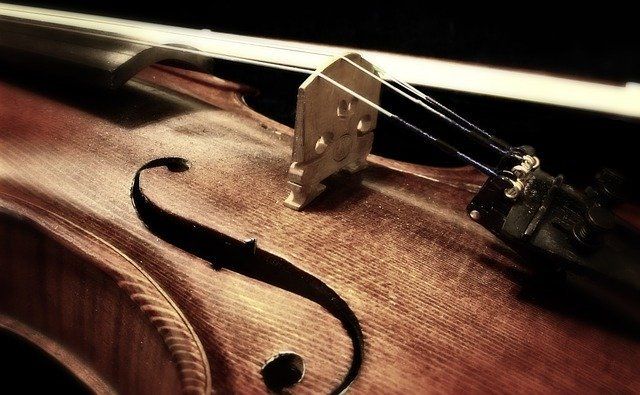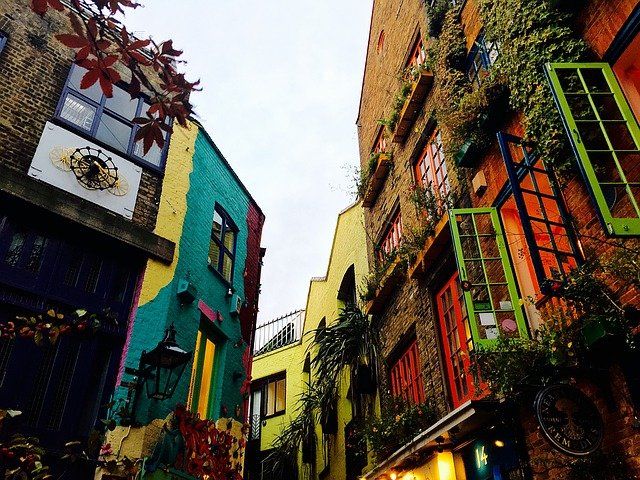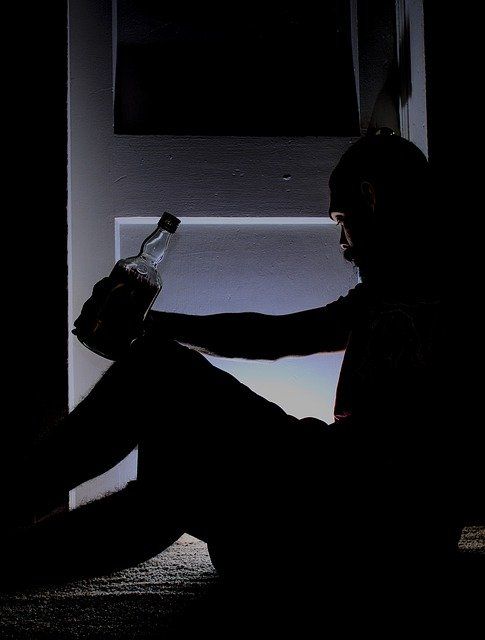
‘Soho hits the headlines for all the wrong reasons’
London’s Soho district has a big reputation for such a small community. Hemmedin by Oxford Street, Regent Street, Charing Cross Road and Leicester Square in the city’s West End, Soho occupies less than half a square mile.
It may be small but it has made its mark on the international scene, largely because of the vice industry concentrated in the area. Originally a green field site (‘Soho’ is a hunting call), the area was developed in the 1680s. In the 18th century Soho was the fashionable place to live, and 27 Members of Parliament made their London homes here. Today, a surprising number of 18th and 19th century houses remain.
However, tradition still lingers, and one of the local delights is to hear the sound of hooves on cobbled streets in the early morning as the Household Cavalry exercise their horses at dawn.
Blue plaques
Soho can boast an impressive array of blue plaques. Karl Marx lived in Dean Street and gave lectures in the Red Lion pub in Great Windmill Street.
William Blake was born here. Mozart lived and composed locally. The poet Shelley lodged here after being sent down from Oxford. Soho is a home for Italian, Spanish, Portuguese, Chinese, Bangladeshi, Greek, and, increasingly, Eastern European people. The population, which numbered 70,000 before the second world war, has shrunk to 4,000.

Wrong reasons
Sadly, many of the craftsmen who once worked in the area have been squeezed out by the high cost of property. The violin, lace, and clock makers have almost entirely gone. A few specialist bakeries and coffee shops continue to thrive.
But Soho regularly hits the headlines for all the wrong reasons. The vice industry is the main attraction for many of the one million people who visit or work in the area each day. This small community has 54 public houses, 200 sex clubs and 90 brothels. Many of the girls work the street to finance their drug addiction.
Soho is also the recognised centre for London gay and lesbian activists, who dominate the bars and cafes in Old Compton Street. Gang wars, drug dealing, drunkenness, violence and vagrancy are part of the normal daily scene.
Moral damage
The extent of the moral damage done in Soho can hardly be imagined. According to a recent television documentary, Soho’s magazine and video shops regularly sell hard-core pornographic material without prohibition or restraint.

In 1978 London’s Grace Baptist churches became concerned at the lack of local Christian witness in London’s city centre. Mayfair, Covent Garden and Soho were particularly in need of Christian families who would live among (and witness to) residents as members of the local community.
These families would involve themselves in community activities, such as the Soho Society, tenants’ associations, housing committees, school management and so on. Since there were no church buildings available, the Christians would use family homes as bases for outreach and Bible teaching. By 1982 the project was ready for launch.
Practical help
My wife and I, with two children, moved into Soho in the autumn of that year. It was an inauspicious start, our home being a shoe-box-sized basement flat, with no bathroom. Equipped only with a strong sense of God’s call, and the support of many friends, we set out to meet our neighbours.
Soho’s violent reputation encourages stringent security measures. We quickly realised that locals lived by a simple rule; if you don’t know him, don’t trust him.
No headway was made for several weeks. Clearly, no exception was being made for the new Baptist minister! One morning, however, we found a ‘key’ that could open doors and build confidence.
An elderly Jewish women was having problems getting her toilet to flush! Local plumbers and carpenters do not exist in the heart of London. With jacket off and sleeves rolled up, I managed to solve the problem. The resulting friendship not only lasted for several years but also opened her neighbours’ doors to me.

Drunken mayhem
Showing Christian love through practical help, while sharing the gospel, is our way of making Christ known to the people of Soho. The past 18 years have inevitably brought us into contact with many colourful characters. These include the neighbours who begged money from tourists all day, and created drunken mayhem for most of the night.
An elderly Jewish man angrily resented my visits until I found him slumped in the street one night following a heart attack. After that we became goodfriends. A ‘spiritual healer’ began attending the morning service and loved to play honky-tonk music on the piano afterwards.
There was an alcoholic who needed almost daily support for three months and then showed me the door, remarking how well he had done! One night I met a man who, according to the film and the book, was ‘Britain’s most violent criminal’.
Changed lives
Response to the gospel has varied. A young Zimbabwean was fascinated by the fact that we ‘Soho Christians’ were so different from so-called Christians he had known at his public school. Sadly, he found it impossible to deny himself, take up his cross and follow Christ.
More encouraging was the woman who came to genuine faith in Christ and found that she could again look at herself in the mirror without experiencing a deep sense of shame. Christ had given her back her dignity and self-respect. There were many others.
My Soho experience over the past 18 years is a story of struggling with evil, darkness and corruption. But, now and again, someone has heard and responded to Christ’s call to repentance and faith. They have discovered there is pardon, peace and a new life to be found in the Lord Jesus.
Every Sunday, a group of Christians and others meet in the heart of Soho, among the clubs and brothels. Christ is worshipped and his Word is taught. Some who have come to faith in Christ in Soho are now servinghim in the Philippines, Uganda, Mexico and Japan.
Their changed lives are the evidence of Christ’s power to save and keep all who trust him.






